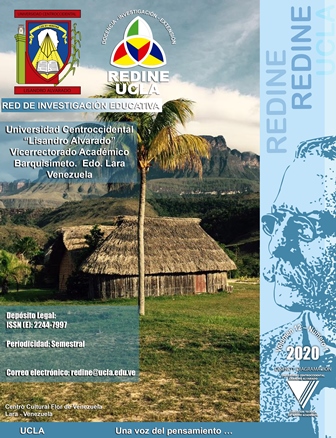be a university teacher in hypermodernity
Abstract
This article is about a study about being a university teacher in hypermodernity, and part of the following research question what are the meanings and meanings that social actors give to the practice of being a university teacher in the context of hypermodernity? The being of education is rooted in the being of man. The essence of education lies precisely in the possibility of guaranteeing a future to that being. The intent of the research was to deduce the senses and meanings about the development of being a university teacher in hypermodernism from the voice of social actors of the Fermín Toro University. Therefore, it was necessary to consider the innovations that are currently being introduced with Information Technology and Communication "ICT". This study was carried out, from a qualitative methodological perspective, under the theoretical perspective and the Hermeneutic-phenomenological method. I assumed the in-depth interview technique, applied to the social actors of the engineering faculty of the “Fermi Toro” University. The research achieved notoriety by revealing findings that emerged through significant units such as: practice of being a teacher, meaning and meaning, identity and hypermodernity. Finally, by way of reflection, the question was answered: How is identity given in the university teaching being? through the social actors when confirming the articulation and integration of the most relevant social meanings, in emerging theoretical elements that shaped the great findings of the present investigation.
Downloads
Published
How to Cite
Issue
Section
Copyright from the year of publication
This work is licensed under a:
Creative Commons Reconocimiento-NoComercial-CompartirIgual 4.0 Internacional (CC BY-NC-SA 4.0)
The opinions expressed by the authors do not necessarily reflect the views of the publication's editor or UCLA. Total or partial reproduction of the texts published here is authorized, provided that the complete source and the electronic address of this journal are cited. Authors have the right to use their articles for any purpose, provided it is done on a non-profit basis. Authors may publish the final approved version of their work online or in any other medium after it has been published in this journal.




